As every educator knows, learning and teaching opportunities can be realised in all kinds of settings, but there’s something special about Discovery Early Learning Centres’ Lenah Valley Bush Camp.
“We are very passionate about nature play,” says Jo Walsh, founder and CEO of Discovery Early Learning Centres.
“We understand the importance of children learning through playing in nature and the benefits of being on Country.
“That’s something we are able to showcase when we go to Bush Camp. We all know that we feel better when we’re in the bush and the mental health and wellbeing of children is better when they are in the bush.”
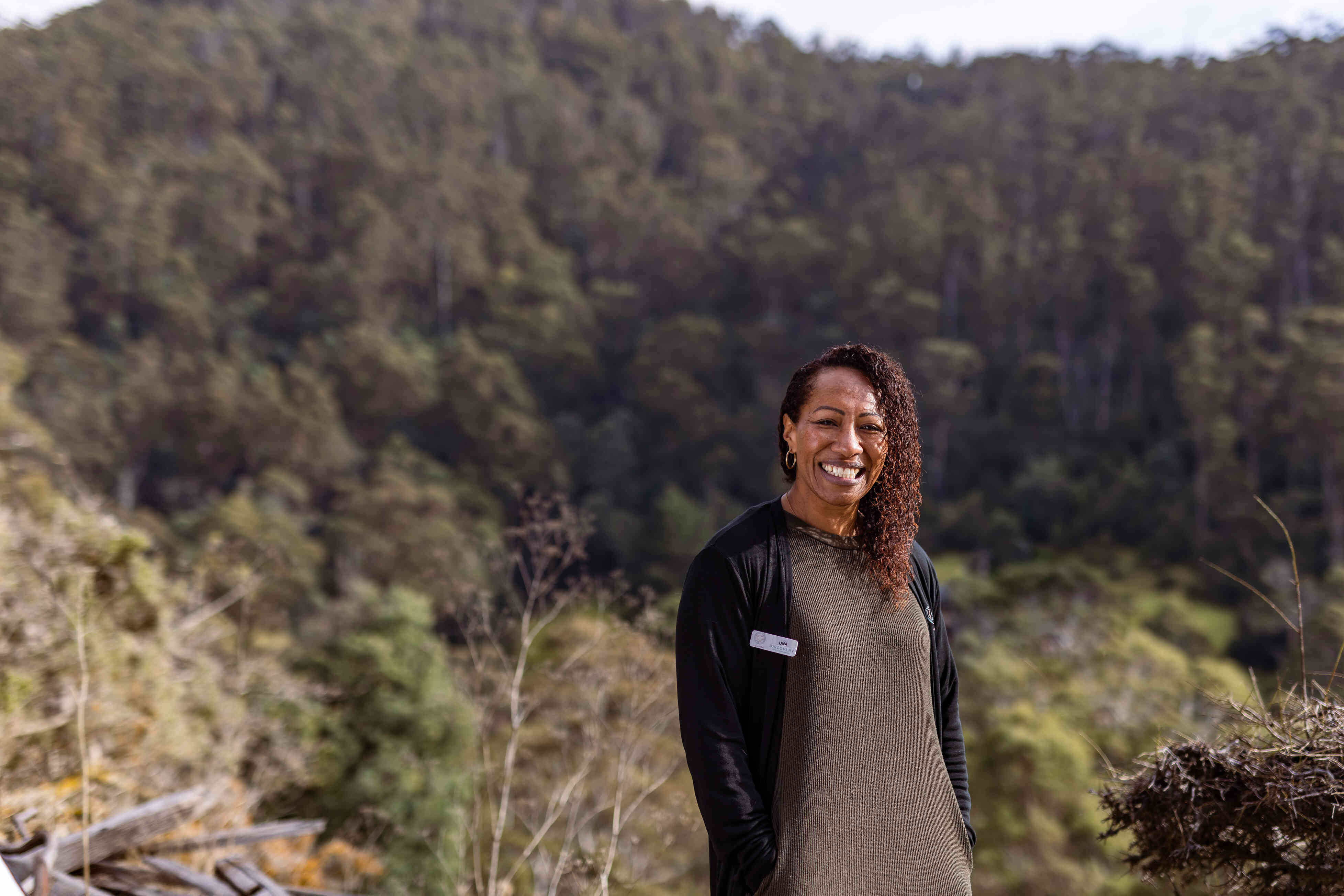
Una Lalagavesi at Lenah Valley Bush Camp.
Una Lalagavesi is Discovery’s Southern Operational Manager and Manager of Quality, Culture and Operations.
You’ll often find her at Bush Camp, a place she says has become even more relevant and significant thanks to the Be You framework.
“The importance of Bush Camp and what Discovery embraces with Be You is the importance of children’s wellbeing.”
“We work closely with the Be You modules, what is the connection with the land and how do we embrace what respect and wellbeing looks like?”
Jo agrees, saying that the flexibility of Be You is key.
“The wonderful thing about Be You is it’s not a set framework and it doesn’t tell you exactly what you have to do. You can use the resources to benefit the way that you work with children.”
And at Bush Camp, that means helping children transition from one nature-based experience to the next. Jo says Be You is invaluable for facilitating this, while supporting children’s agency, too.
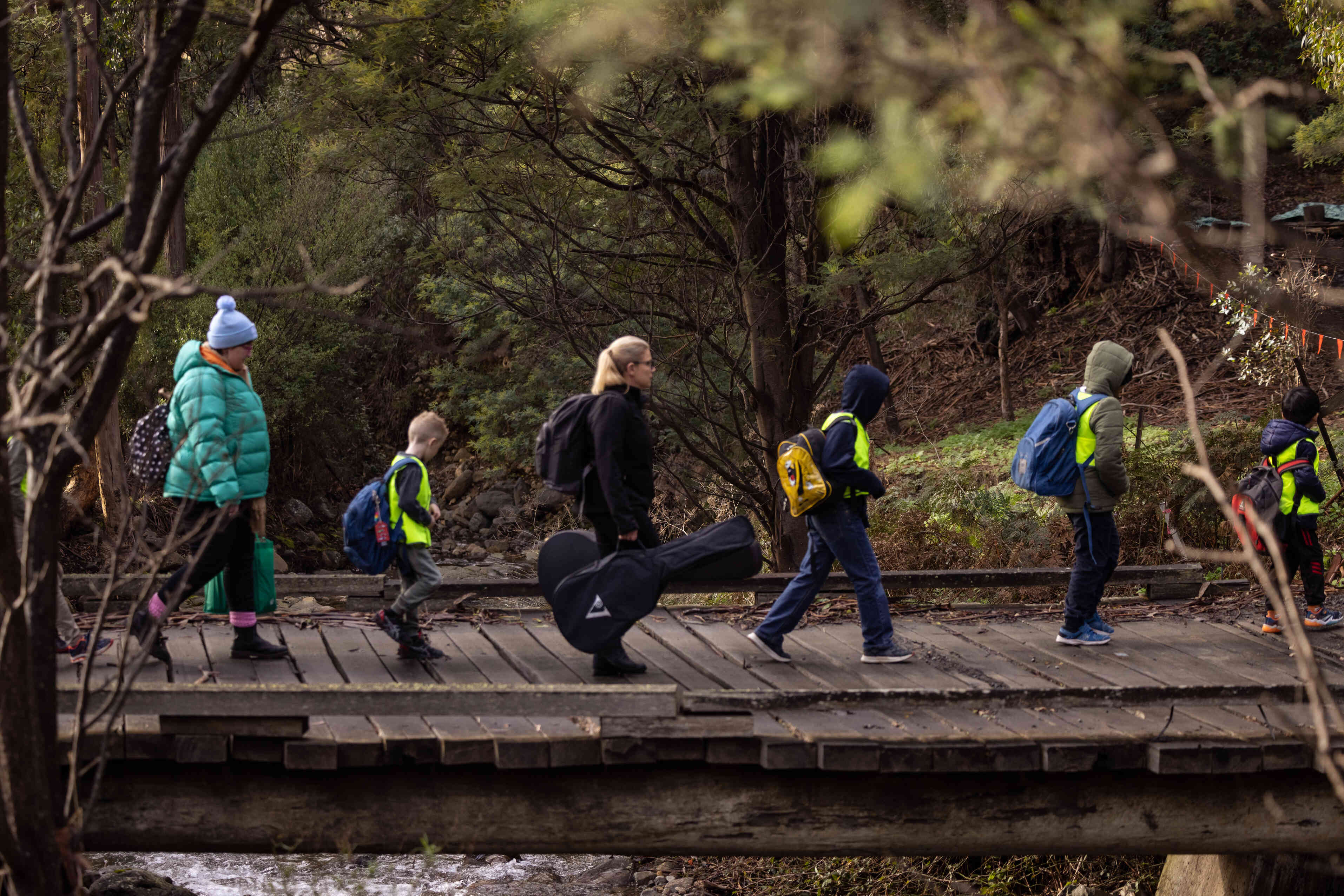
Children make their way to Bush Camp.
A place to nurture resilience
At the entry to the campsite, two rusty cars wait to welcome visitors. They’re more than five decades old and, in the 5 or 6 years that Discovery has been running its Bush Camp, they’ve been left there for a reason.
“We kept the cars as a history to share with children in regards to who lived here,” says Una.
“We educate children that this used to be a farm and there was a bush fire that came through in 1967. We keep the cars there for children to embrace the history of Lenah Valley.”
In many ways, what the valley is all about is resilience; this land, nestled at the foothills of Mt Wellington – or kunanyi in palawa kani, the Tasmanian Aboriginal language – is flourishing, despite facing many challenges over the years.
It’s fitting given Bush Camp delivers so many opportunities for children to have experiences that help to grow their own resilience.
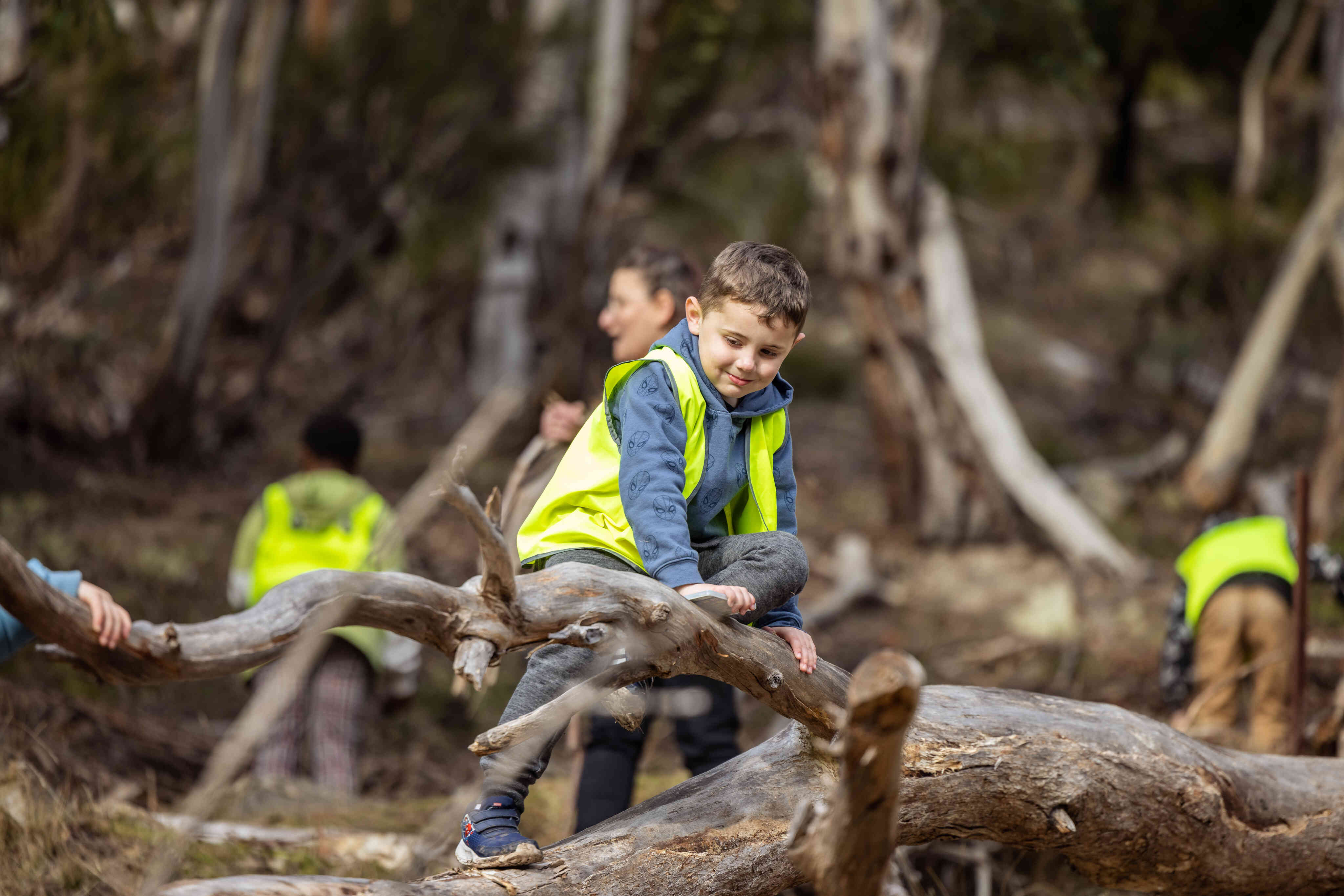
Risky play is encouraged at Bush Camp.
“At Bush Camp, risky play is something that we like to empower children to experience while they are here.”
“Risky play offers them challenges where they can climb trees, they can slide down banks, they can go into the creek.
“It also shows children that it’s okay if you fall over, if you trip – we can pick ourselves back up. It’s all about the life skill that if I slip over, I can get back up and then I can try again.”
These experiences encourage children to problem solve, to develop their language skills and to guide their peers. And because they often involve trial and error, they also nurture resilience.
As the ability to manage everyday stressors and challenges and to be able to bounce back after an adverse event, resilience is a protective factor for children’s mental health and wellbeing.
In line with this, Be You’s Professional Learning framework dedicates one of its five domains and three of its content modules to Learning Resilience.
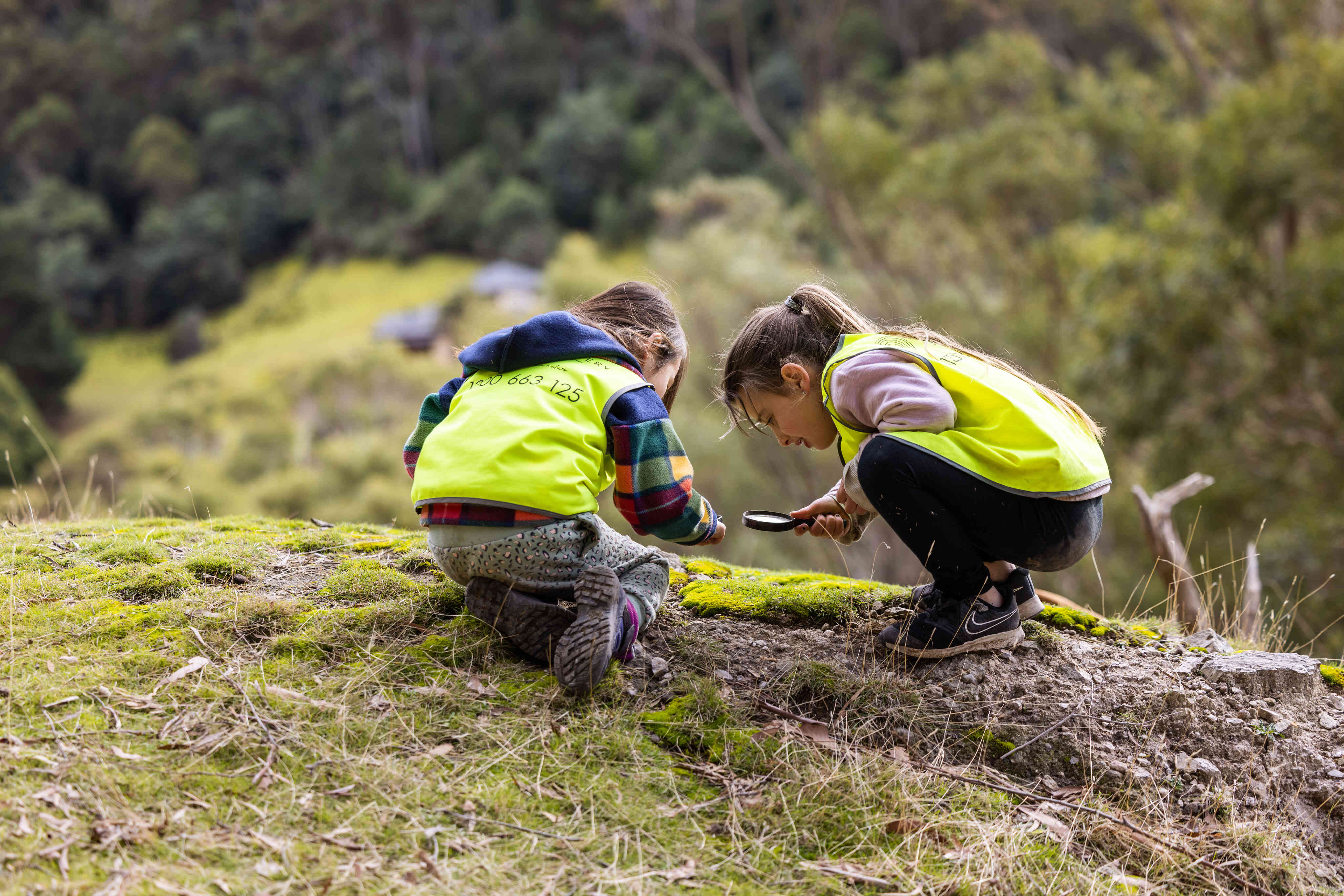
Children are encouraged to explore and ask questions about the land.
Harnessing what’s good about the great outdoors
Una describes children’s behaviour at Bush Camp as being driven by a sense of wonder, something that begins with the appreciation of being on Country, which
Be You’s Cultural Actions Catalogue helped Discovery’s learning community cultivate.
“Being kunanyi and palawa area, we had a blessing from an Aboriginal elder who came through as part of our reconciliation program,”
“She blessed the land and explained to the children about the importance of the land, why we need to respect the land and the people who lived on it, and how we can utilise it.
“This was an extension of how we can celebrate those moments with children, in an environment that they can learn in without any competition, without any interruptions, and just be a child.”
An important part of facilitating Reconciliation at Bush Camp is performing an Acknowledgement of Country or Welcome to Country ceremony.
Today a Welcome to Country is led by Joey Williams, who is a proud palawa woman and the Reconciliation Champion for the Outside School Hours Care programs offered by Discovery’s Sacred Heart and Immaculate Heart services.
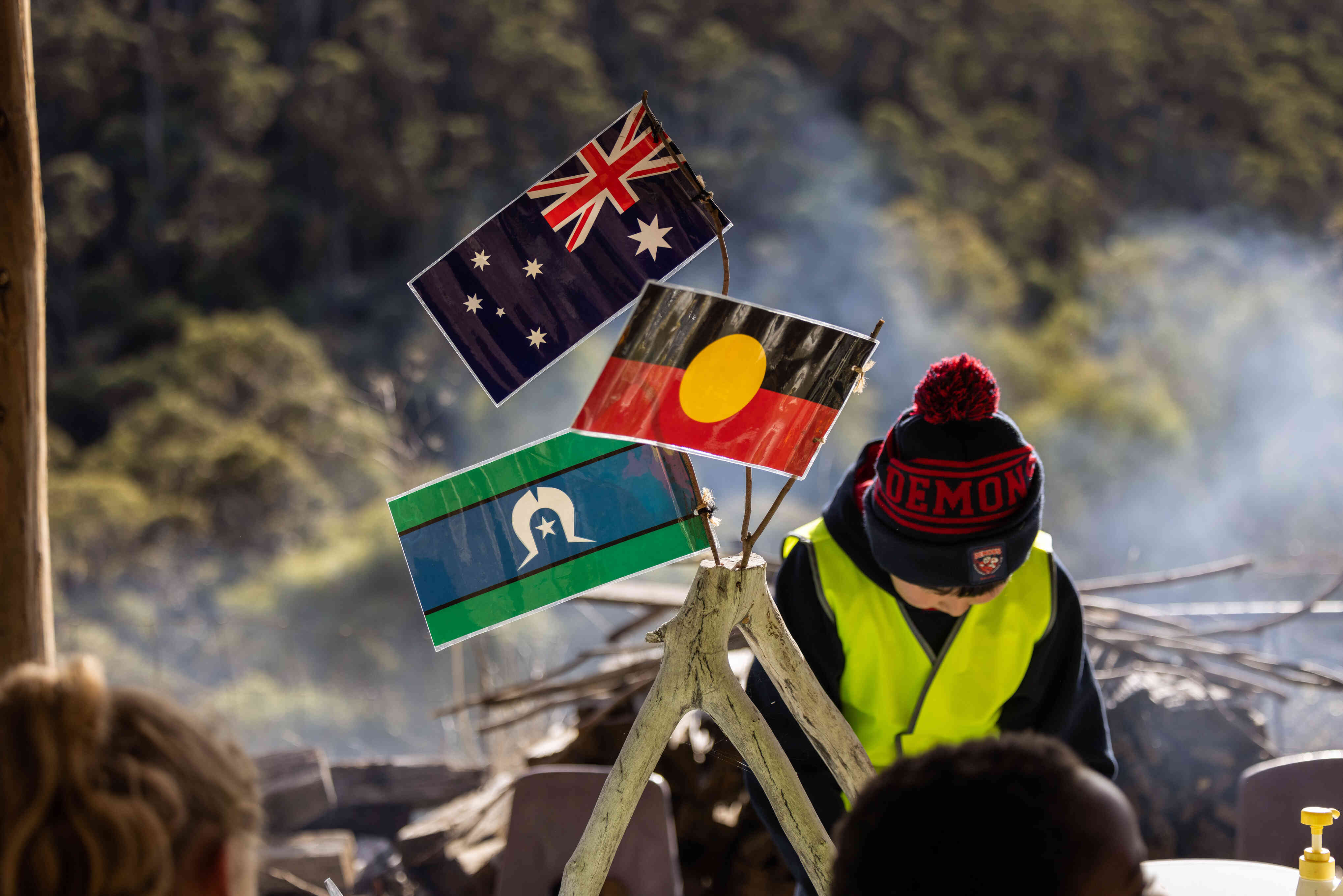
An important part of Bush Camp is performing an Acknowledgment of Country.
“We went from one child reading it, to two or three children saying it. Now every single child says it together. They just love partaking in that experience.”
The same can be said for all experiences on offer at Bush Camp.
The fact that being outside among nature evokes that feeling in children is not only joyful to watch, Una says, it’s powerful, providing a contrast to more traditional educational settings where routines, transitions and adult voices tend to dominate out of necessity.
“When children are here, they have a sense of freedom that this whole open space is theirs," said Una.
"The overarching purpose of Bush Camp is to ensure that children are able to explore an environment where they can just be, within their own capabilities but also stretching their developmental milestones and challenging those capabilities, at their own pace.”
And that experience flows back towards the educators who spend time at Bush Camp, too.
“Educators are able to reflect on their own practice and know that we don’t always have to be leading things. Children can learn so much on their own. I think educators can get so focused on having to be with children, but here it’s about just allowing them this space.
“This is where you can hear a child’s voice rather than an adult’s voice, and I think that’s really important.”
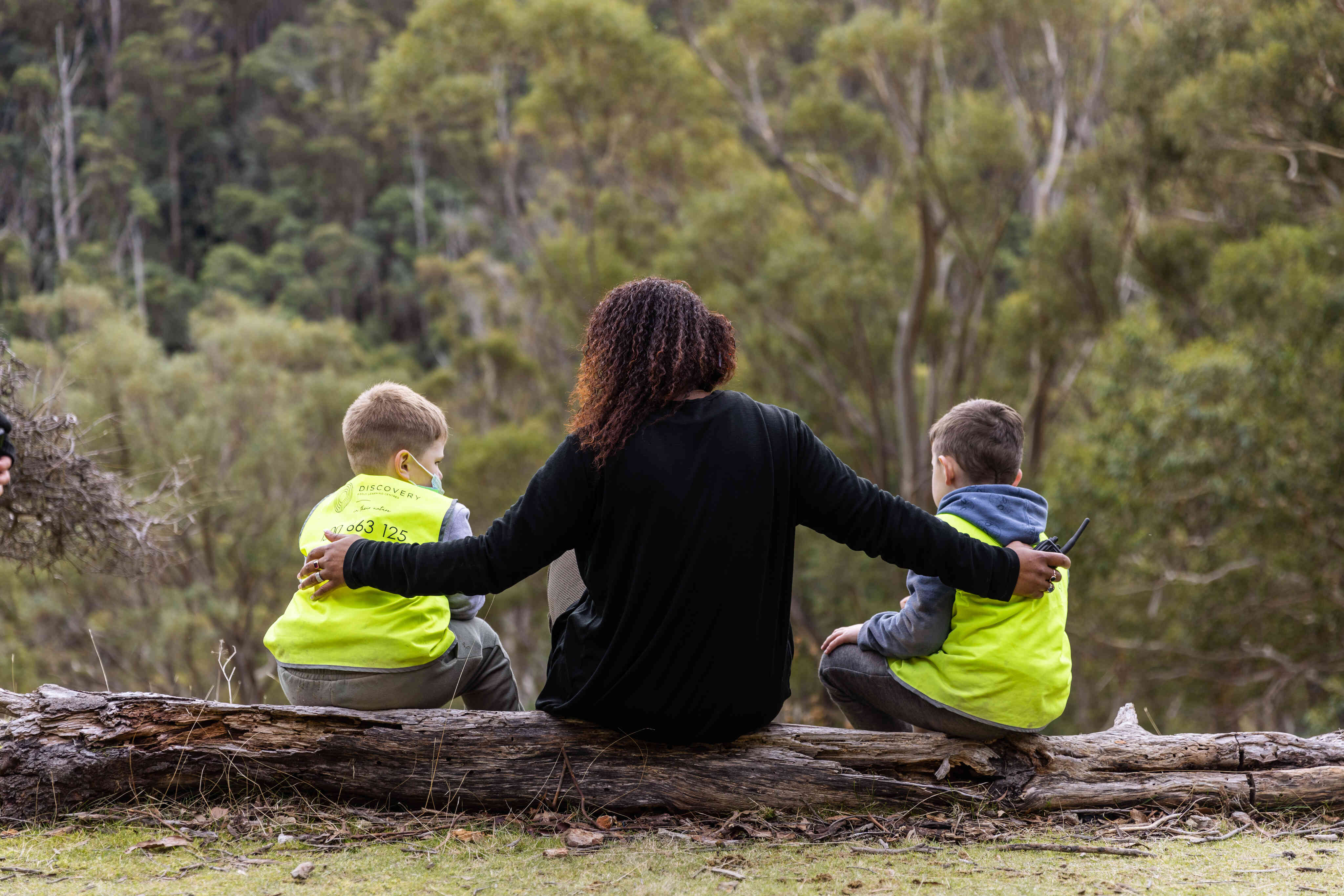
Una Lalagavesi at Lenah Valley Bush Camp
Building a mentally healthy community
While the camp provides a unique setting for educators to encourage children to build resilience, like everything, the program is far more than just one thing.
Bush Camp also encourages children to connect with each other and forge strong relationships, something mentally healthy communities rely on. The Be You Learning
Resilience domain, Resilience and Social and Emotional Learning Fact Sheets have been key resources for Discovery to implement risky play in this space.
“Risky play supports children in their imagination. And it empowers them to be natural leaders, to look after their peers and to support each other through cooperation – to think about how can we work as a team to create an outcome?”
That might be building a hut, working out how to make a fishing rod from a stick or, in the cooler months, learning how to use fire for cooking.
“They have conversations about things like, ‘How long do we need this stick to be to make a sheltered area for us? What other materials can we gather?’, and you’ll see natural leaders come from those conversations."
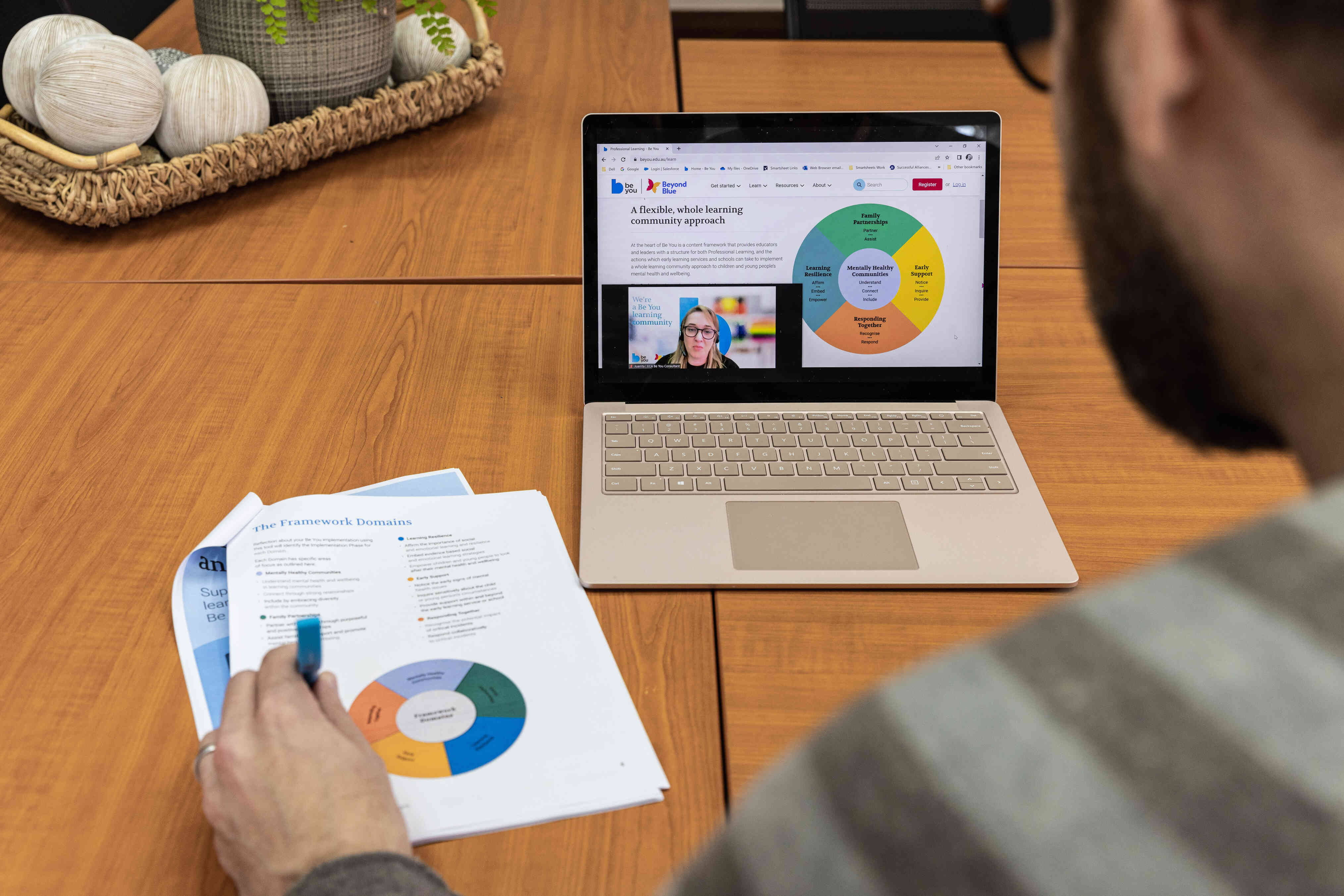
The Be You Learning Resilience domain, Resilience and Social and Emotional Learning Fact Sheets have been crucial resources for Discovery when implementing risky play at Bush Camp.
Una has observed the value of these learning opportunities being embedded into Discovery’s School Age Care program, firsthand.
“The benefit of having school-aged children in our Bush Camp program is that, we’ve noticed how children at this age are spending so much time on their screens and not understanding and knowing the importance of being outdoors.
“We found that when we first trialled this program, a lot of our school aged children were like, ‘I’m bored. I want to go back. I need my screen time’, to start with. They didn’t have the concept of just imagining and exploring the land around them.”
The more time they spent at Bush Camp, the more that changed. By engaging their imagination and encouraging them to use their life skills to create something from nothing, Una has noticed an important shift.
“There was a change in mentality of having to be a group and a team rather than being individuals.” Una says that builds on Discovery’s commitment to provide children
with a sense of family and community, where differences are embraced and viewed as strengths.
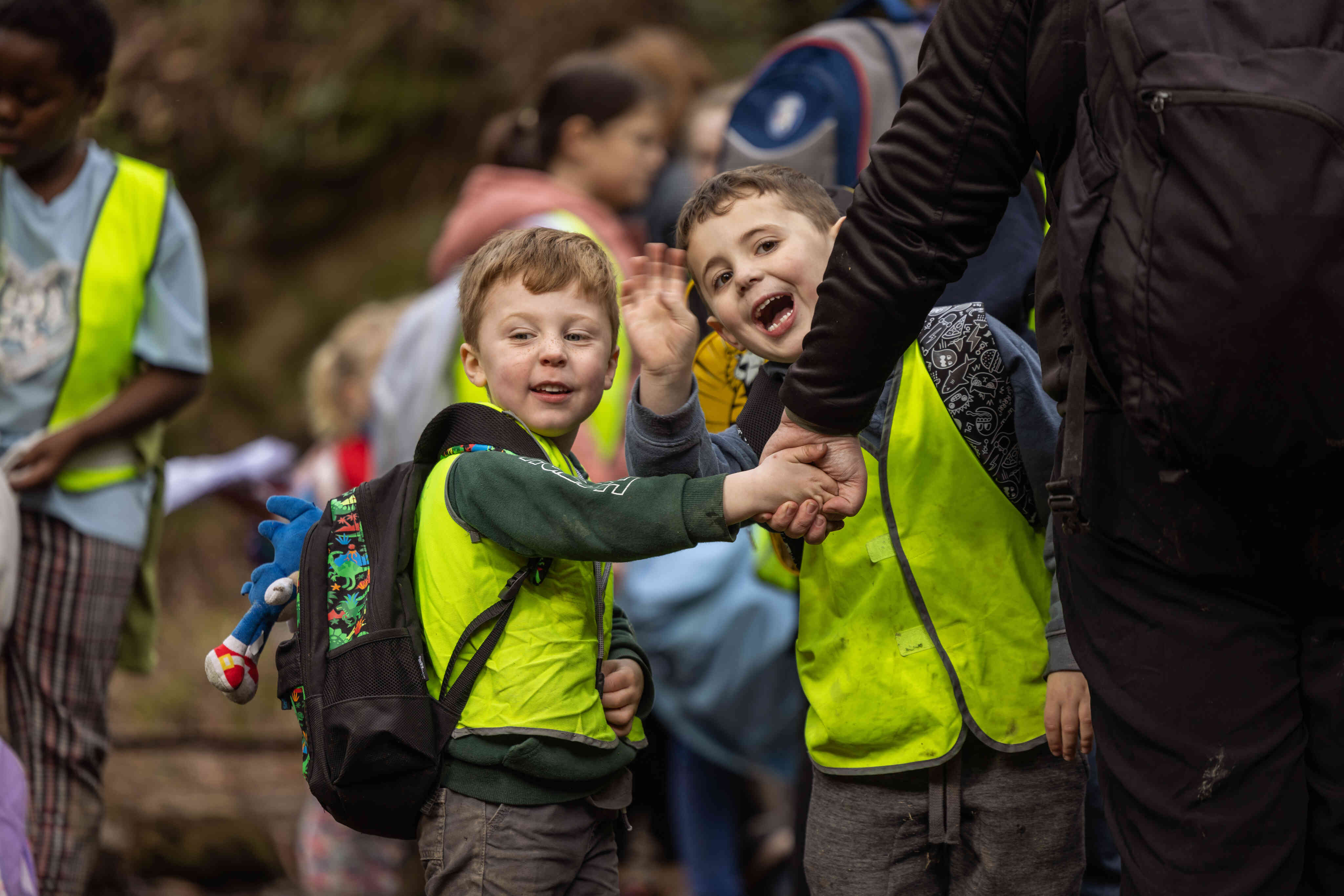
Bush Camp encourages children to build resilience and connect with each other.
“At Discovery, we embrace the importance of family and what family looks like, understanding that not all children have that family dynamic at home.”
So, how do we create environments where children feel a sense of belonging? How do we create environments where children feel that they feel part of a community?”
In collaboration with Discovery’s other programs and Be You, Bush Camp is an important part of that puzzle.
If you’d like to connect with a Be You Consultant and begin your Be You journey, register as a Be You Learning Community and join a Be You Essentials event to discover what Be You has to offer.
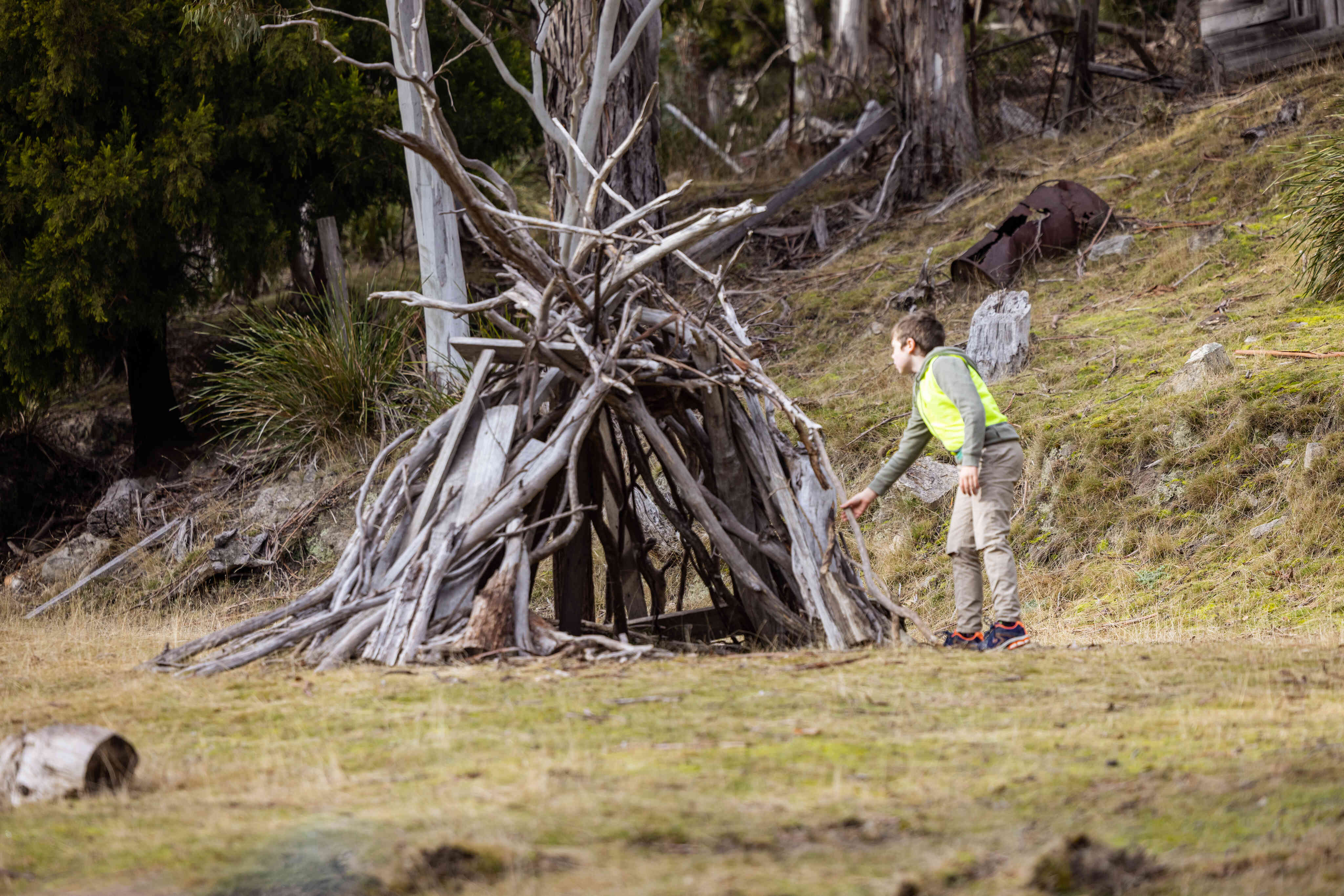
The overarching purpose of Bush Camp is to ensure that children are able to explore an environment where they can just be themselves.